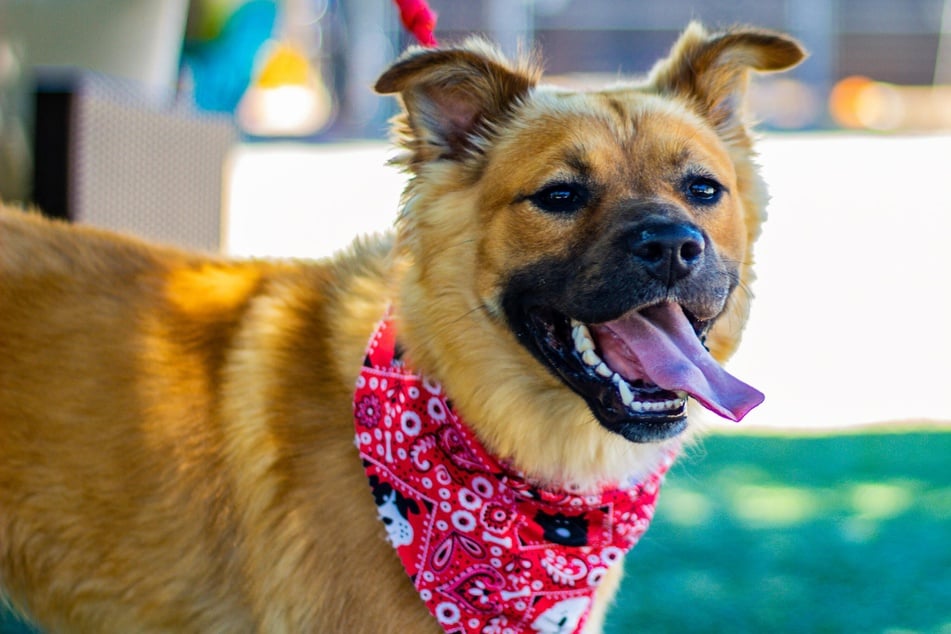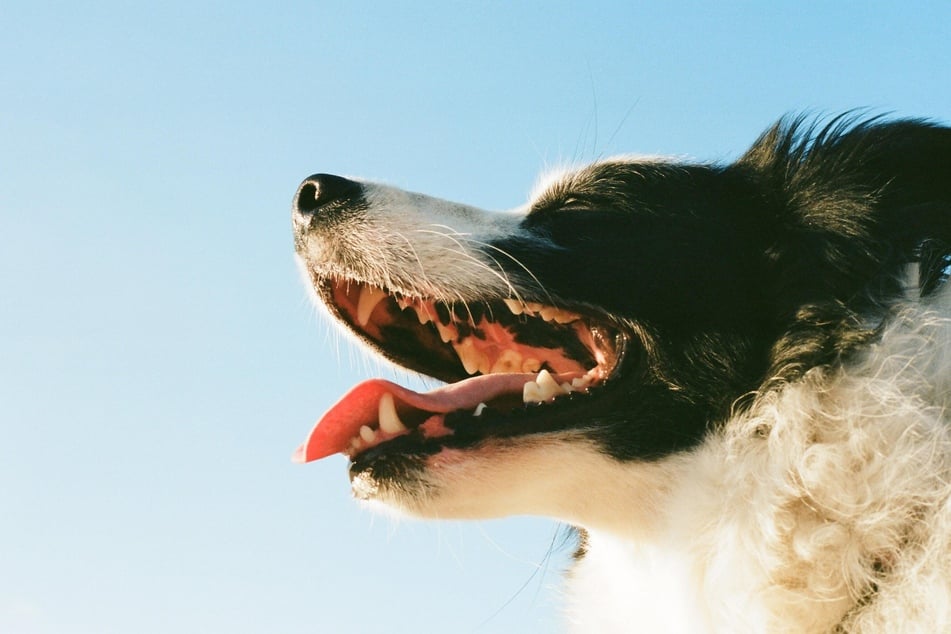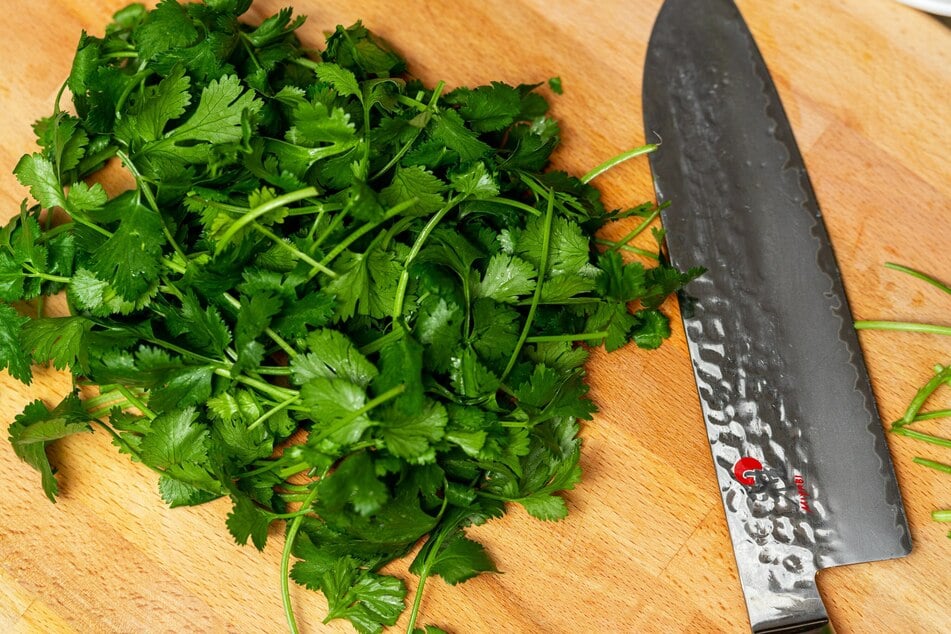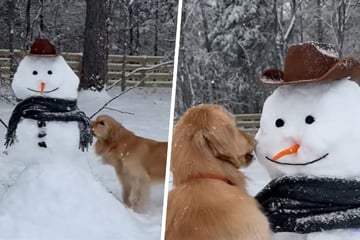How to get rid of bad dog breath? Helpful home remedies for stinky breath!
You've just come home and your faithful four-legged friend couldn't be happier to see you! But as your dog jumps up to greet you, a nasty smell almost knocks you over – bad breath is getting between the two of you!

Dogs do basically everything with their mouths: sweat, eat, drink, carry objects, and not least of all, show affection. So it's all the more important to ensure proper oral hygiene for your pooch.
In that respect, bad breath in dogs is an important warning sign for owners. Whether it's stinky burps or a distinctly fishy whiff, foul-smelling breath shouldn't be ignored.
Of course, your first step should always be a stop at the veterinarian, as checking in with an expert never hurts. But there are also some useful home remedies and simple solutions that help deal with stinky dog breath.
Remember, though, that identifying the cause of bad breath is an important part of getting rid of it. This can be anything from disease to poor nutrition, and everything in between.
Why does your dog have bad breath?
You wanna know what causes bad dog breath?
Here are some possible reasons for bad breath in dogs:
too many bacteria in the oral cavity, which causes gum swelling and infections, as well bone loss in extreme cases
- food residue or other foreign objects stuck between the dog's teeth or in the gums
- teething in puppies
- diseases of the mouth, throat, or digestive system
- poor quality food and nutrition
tartar due to poor dental care
loose teeth in older dogs
More useful guides: How much do dogs sleep? What owners need to know
How do you interpret different types of bad breath?
As icky as it may sound, trying to figure out what your pupper's bad breath smells like can help identify the cause.
In the case of digestive issues like gastritis and gastrointestinal infections, there will be a fermented or bitter quality to the smell.
For acidic bad breath, acid reflux is usually the culprit, and the underlying cause is stress or poor quality food.
Things might be a bit more serious if you catch a whiff of pee or ammonia – that could be a sign of kidney disease.
A chemical scent not unlike nail polish remover is associated with diabetes, especially if your dog seems to be constantly thirsty. A sweet smell can also be related to diabetes, but a fungal infection isn't out of the question.
Gum diseases will produce a nasty rotten egg smell.
Blood has a metallic odor, which explains why puppies might give off this smell when they're teething. In older dogs, it's a sign of oral injuries, such as bleeding gums or loose teeth.
Then there's our furry friends' most disgusting habit: eating poop, which of course makes for some pretty intensly bad breath.
Dog lovers might also be interested in these guides:

How to fix bad dog breath?
Whatever the exact nature of the smell may be, your first step should always be a visit to the vet, just to rule out some of the more serious possible causes. If your dog is fundamentally healthy, the bad breath will normally subside on its own.
If it doesn't and disease has been ruled out, start by checking your dog's mouth for any food residue.
The diet could also be an issue, in which case it has to be changed. Breeders or doctors are best qualified to design a good nutrition plan that satisfies individual needs. Either way, the food should definitely not be too rich in sugar. Other sweet ingredients to avoid are fructose, sucrose, saccharin, artificially produced maltose, molasses, aspartame and glucose extracted from potatoes, wheat, or corn starch.
The dreaded poop-munching problem is sometimes just attention-seeking behavior on your dog's part. It's natural that you react strongly to this kind of snacking, which pooches interpret as a sign of excitement. Ignoring these small snacks and at most subtly pulling your dog away from any stray droppings should be enough to break the habit.
You can also mix finely chopped fresh herbs such as parsley, peppermint, basil in the doggie bowl to improve a dog's breath. Small amounts of yogurt also have an odor-binding effect, but this can lead to diarrhea in case of intolerance. Remember that these options only deal with symptoms, not causes, which should always be determined as quickly as possible by an expert.

When puppies are teething, chamomile helps with both the pain and the smell. A compress soaked in chamomile is excellent for treating oral injuries and infection. Besides, getting young dogs used to oral hygiene will make life easier for you in the long run.
Baking soda is a remedy for acid reflux, but the use and exact dosage should only be set by a medical professional. Usually, a half or full teaspoon of baking soda dissolved in warm water will do the trick.
Another solution for bad breath is brewer's yeast in the form of tablets, flakes, or powder. This will boosts your dog's immune system and treat gastrointestinal problems, unhealthy-looking coats, fungal infections, liver disease, and skin problems.
Besides smelling pleasantly, coconut oil is also a natural antibacterial and can be added to meals. It can act as a sort of toothpaste for dogs and prevent bad breath.
Carrot, apple slices, or even dried bread are good alternatives to chewing bones which clean your dog's teeth, but of course there's always the option of buying a specially designed product.
Speaking of products, regularly replacing your pooch's favorite toy is a good idea, since it collects bacteria and germs which end up in its mouth.
It's worth restating that a dog's bad breath should always be examined by a vet to rule out any big concerns. Otherwise, regular teeth cleaning and a healthy diet are the way to go if you want to keep enjoying your furry friend's wet affections!
Cover photo: unsplash/Madeline Bowen
